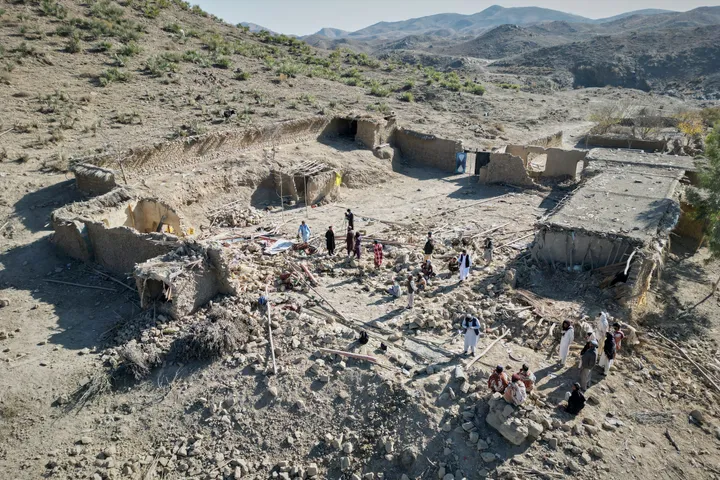Turkish band named Fungistanbul develops music using instruments made from plastic and metal trash.
The trio has been turning waste materials into musical instruments to promote recycling.
Fungistanbul started experimenting with a sound they call "Trash Oriental" in 2019, joining a growing global movement of groups that jam with things they find after rummaging through dump sites and trash bins.
"We had no idea we would come up with this sound when we first started," band member Roni Aran told AFP.
The group owns a studio, which is nestled away in a grimy part of Istanbul surrounded by auto repair shops.
"We were all surprised with the result, and so was the audience."
Fungistanbul's emergence coincides with the growing sense of responsibility among Turkish people toward protecting their environment.
Aran and his two middle-aged friends, who are all professional musicians, told AFP they are promoting "up-cycling" -- the process of adding value to old items that would otherwise have been thrown away.
"I found this near a garbage dump," Aran said. "Luckily, it was clean."
Turning a cluttering sound of metals and plastic into a melody is not as simple as it may sound. For Aran and his band members, it takes hard work, a lot of thinking and commitment to building musical instruments with discarded plastic and metal products and then making sure they produce consistent musical sounds.
"No matter how primitive it may sound, there's technology behind all these instruments," Aran said.
For instance, they use a large plastic tub with a deep flat bottom, which can produce the sound of a drum, and then fasten it with a glass container. Another feature added to it is a bell that can give a ringing effect to the performance.
Artuc, a percussionist who specialises in Latin jazz, pounds plastic mannequins to add a variety of sounds.
"They turned into a multi-percussion instrument after adding some artistic flair," he said, explaining why he uses mannequins.
The band have two music videos in their "Trash Oriental" series and are working on a third, this one involving scrap metal.
Fungistanbul follows in the steps of groups such as Latin Latas (Latin Cans), formed in Colombia a decade ago who now have an international following and a strong social media presence.
The Turkish trio is still novices by comparison.
"We had to question ourselves," Artuc said. "It took time before we could go on stage and really play these instruments."
The band still suffers an occasional mishap on stage, although their fans usually take it in stride.
"The instruments sometimes fall out of tune in the middle of a concert," Aran said.
"But you can lift the mood by saying 'hold on, I will retune,' and the audience will tolerate it knowing that the instruments are serving a more important purpose."
Turning waste into musical instruments is becoming a worldwide movement to save the environment. Egyptian businessman Rabab Luxor has been widely appreciated for his efforts to start the Garbage Music Project. Its purpose is to counter plastic pollution with art and also help poor kids who live on the streets of Egypt with the knowledge of making musical devices from trash and also teach them how to play music on them.
“This project started off largely as an experiment,” explains Rabab. “Today, it is renowned and celebrated locally, nationally and even internationally for the educational, artistic and environmental messages and achievements.























